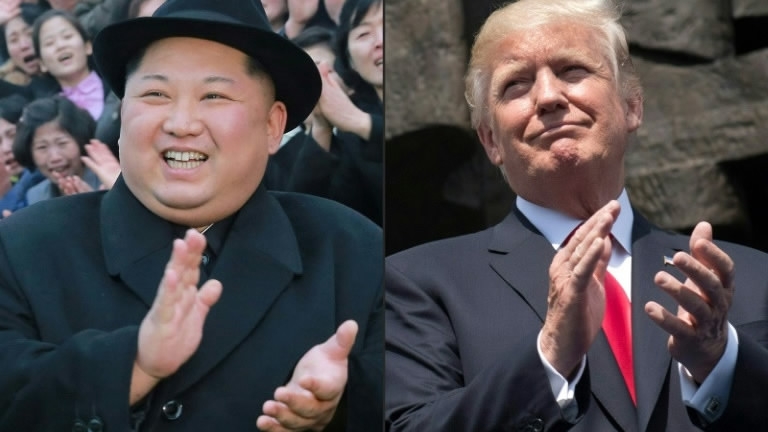The Democratic People's Republic of Korea (DPRK) on Wednesday cancelled talks with the Republic of Korea over the "Max Thunder" joint military exercise being held between the US and the Republic of Korea (ROK), and threw into doubt the summit between its leader Kim Jong Un and US President Donald Trump scheduled for June 12.
A report of the DPRK's official KCNA news agency stated that the air force drills are a "rehearsal for invasion of the North and a provocation," and appeared to mark a break in months of warming ties between the DPRK and the ROK and between Pyongyang and Washington.
"This exercise, targeting us, which is being carried out across South Korea (ROK), is a flagrant challenge to the Panmunjom Declaration and an intentional military provocation running counter to the positive political development on the Korean Peninsula," KCNA said. "The United States will also have to undertake careful deliberations about the fate of the planned North Korea (DPRK)-US summit in light of this provocative military ruckus jointly conducted with the South Korean authorities."
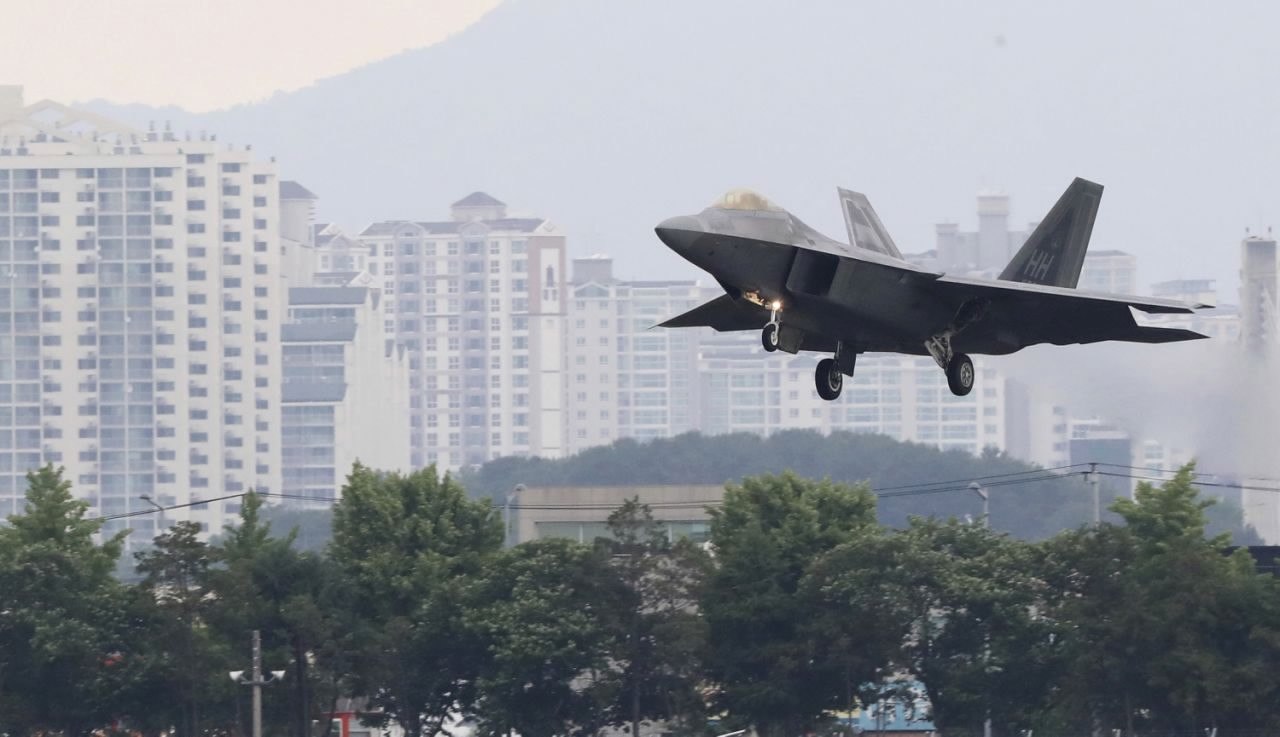
A US F-22 Raptor stealth fighter jet lands as ROK and the US conduct the "Max Thunder" joint military exercise at an air base in Gwangju, ROK, May 16, 2018. /AP Photo
A US F-22 Raptor stealth fighter jet lands as ROK and the US conduct the "Max Thunder" joint military exercise at an air base in Gwangju, ROK, May 16, 2018. /AP Photo
The division between the US and the DPRK still exists despite the recent months' warming inter-Korean relations and the turnaround of US-DPRK relations.
China said on Wednesday all parties "should show goodwill and avoid mutual provocation" to create a conducive atmosphere for denuclearization of the Korean Peninsula. China has been stressing to solve the Korean Peninsula nuclear issue through talks and peaceful means.
Nonetheless, Trump's approach to the DPRK has been the opposite: Maximum pressure until he sees observable steps toward denuclearization. The US has insisted on complete, verifiable, and irreversible dismantling of DPRK's nuclear weapons and the facilities needed to build the weapons as soon as possible.
The main reason behind the DPRK's denouncement lies in the US, said Lv Chao, an expert of inter-Korean relations at the Liaoning Academy of Social Sciences.
He said that the statement made by the DPRK was not totally unexpected. The DPRK was conveying an important message: the turnaround is a strategic decision of its top leader, and is a change that the DPRK has taken on its own initiative instead of a passive response to pressure from the US.
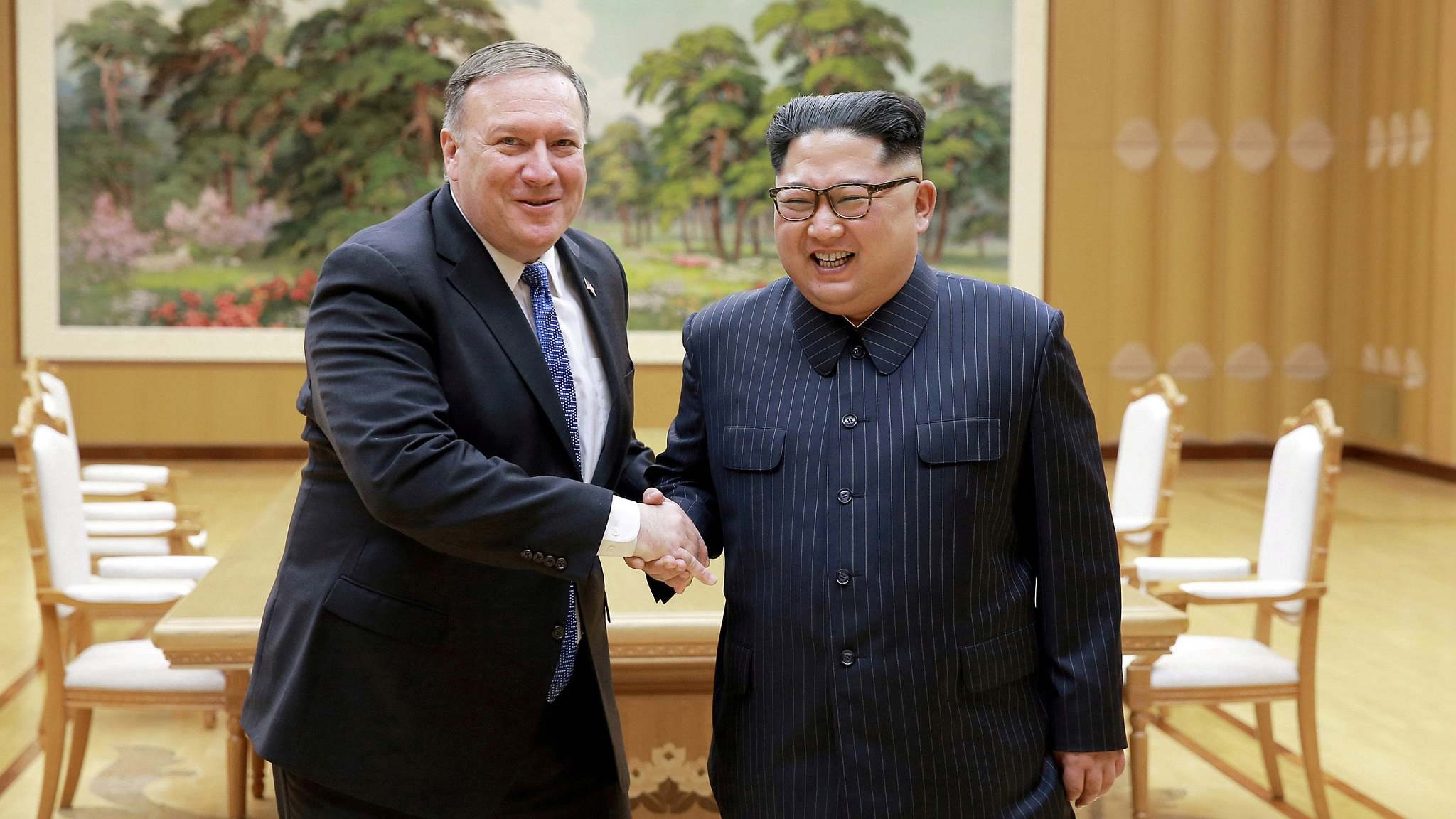
DPRK's leader Kim Jong Un shakes hands with US Secretary of State Mike Pompeo in this May 9, 2018 photo released on May 10, 2018 by DPRK's Korean Central News Agency (KCNA) in Pyongyang. /VCG Photo
DPRK's leader Kim Jong Un shakes hands with US Secretary of State Mike Pompeo in this May 9, 2018 photo released on May 10, 2018 by DPRK's Korean Central News Agency (KCNA) in Pyongyang. /VCG Photo
"If the US is trying to drive us into a corner to force our unilateral nuclear abandonment, we will no longer be interested in such dialogue and cannot but reconsider our proceeding to the DPRK-US summit," KCNA said, citing first vice minister of foreign affairs Kim Kye Gwan. "We have already stated our intention for denuclearization of the Korean Peninsula and made clear on several occasions that the precondition for denuclearization is to put an end to anti-DPRK hostile policy and nuclear threats and blackmail of the United States."
In the past, Pyongyang has demanded the withdrawal of the US troops stationed in the ROK, and an end to Washington's nuclear umbrella over its security ally.
Analysts said Pyongyang was now trying to redefine the terms of the debate.
"It's a diplomatic tactic," said Kim Hyun-wook, professor at the Korea National Diplomatic Academy, calling it "brinkmanship to change the US position".
"It looks like Kim Jong Un was pushed into accepting US demands for 'denuclearization-first' but is now trying to change its position after normalizing North Korea-China relations and securing economic assistance," he added.
US officials have repeatedly claimed credit for Washington's "maximum pressure" policy for bringing Pyongyang to the negotiating table.
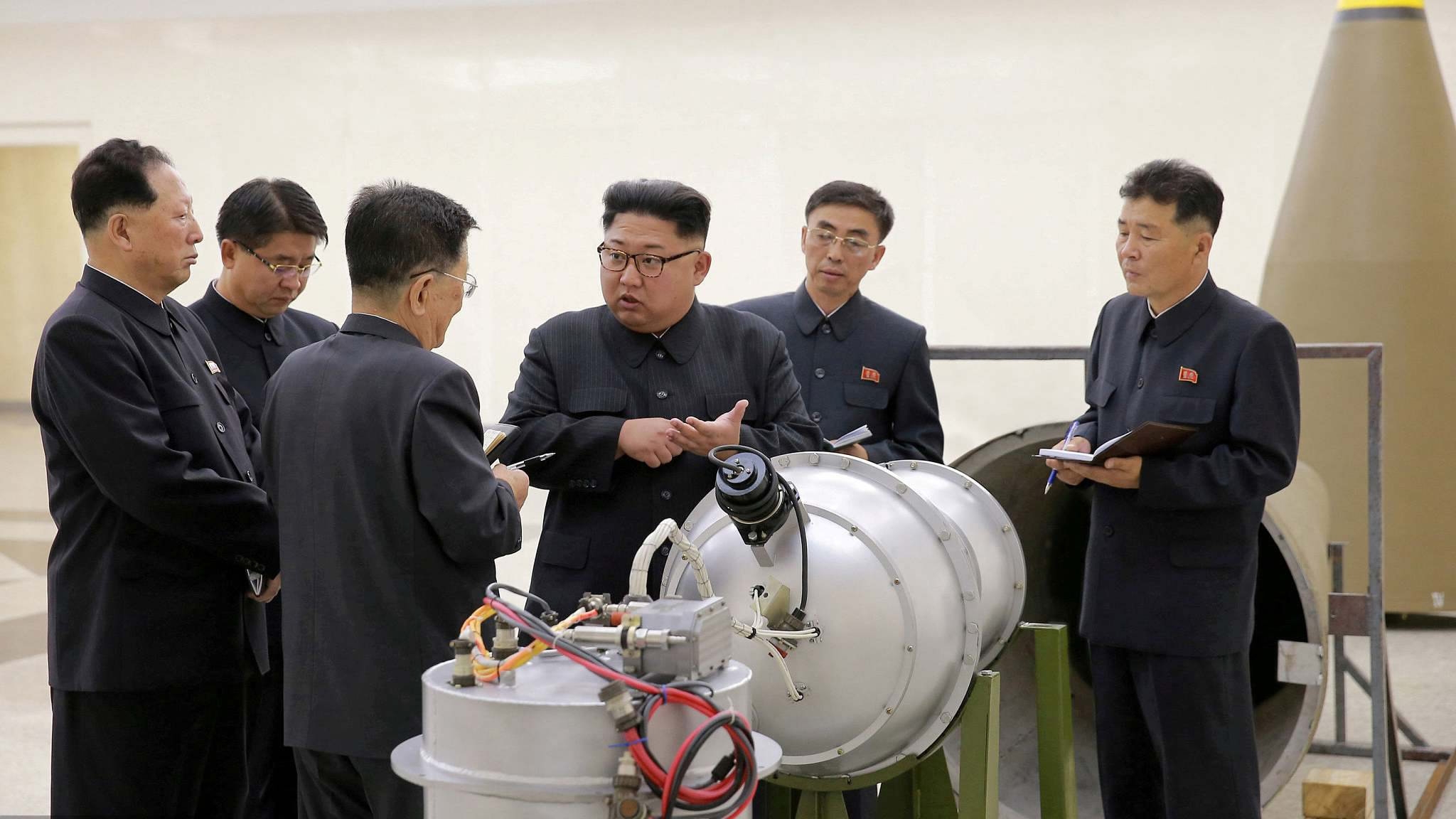
DPRK's leader Kim Jong Un provides guidance on a nuclear weapons program in this photo released by KCNA in Pyongyang, Sept. 3, 2017. /VCG Photo
DPRK's leader Kim Jong Un provides guidance on a nuclear weapons program in this photo released by KCNA in Pyongyang, Sept. 3, 2017. /VCG Photo
Joshua Pollack of the Middlebury Institute for International Studies said Pyongyang had been irritated by the "triumphalist tone".
"The North Koreans aren't happy with what they're seeing and hearing," he said. "There is still a yawning gulf between expectations for diplomacy in Pyongyang and Washington, DC."
He said Pyongyang appeared irritated by the US administration’s vow to maintain sanctions in spite of DPRK's concessions.
"The North Koreans want a change in tone from the US, and at least so far, they're not hearing one," he said.
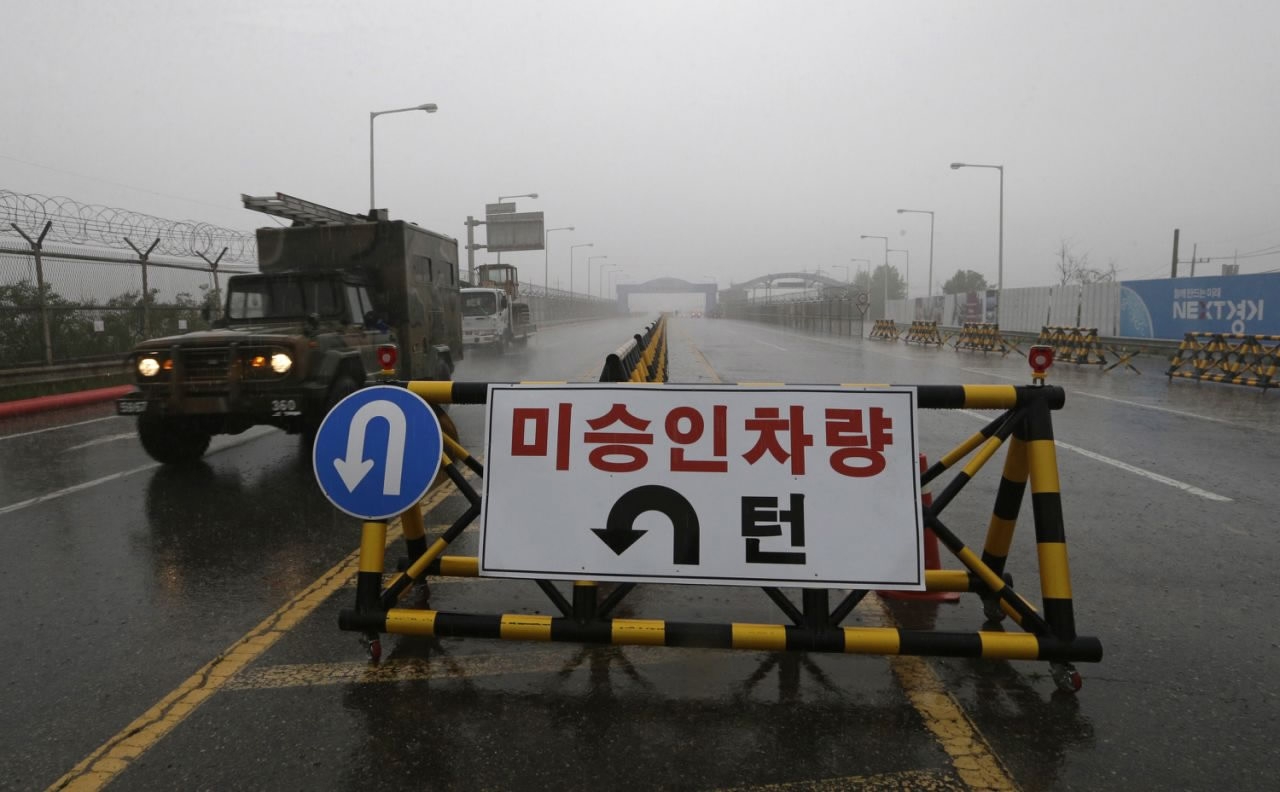
An ROK military vehicle crosses Unification Bridge, which leads to the demilitarized zone, near the border village of Panmunjom in Paju, ROK, May 16, 2018. /AP Photo
An ROK military vehicle crosses Unification Bridge, which leads to the demilitarized zone, near the border village of Panmunjom in Paju, ROK, May 16, 2018. /AP Photo
Lv said that the settlement of the DPRK nuclear issue is an extremely complicated process; it does not happen overnight. Instead, people should be prepared to go back and forth.
US Secretary of State Mike Pompeo told ROK's Foreign Minister Kang Kyung-wha by telephone on Wednesday that Washington would continue to make preparations for the US-DPRK summit.
The White House is "still hopeful" the summit between Kim Jong Un and US President Trump will proceed despite Pyongyang's threat to cancel it, spokeswoman Sarah Sanders said Wednesday. "We're still hopeful that the meeting will take place and we'll continue down that path," Sanders told Fox News. "At the same time ... we've been prepared that these might be tough negotiations."
Washington said it will continue to plan the meeting in Singapore on Jun 12, with State Department spokeswoman Heather Nauert telling reporters it had received "no notification" of a position change by the DPRK. The exercises were "not provocative" and would continue, she added.
Frida Ghitis from CNN said the DPRK is testing how much Trump is willing to give up to prevent the collapse of the summit. It remains to be seen how Trump responds. After all, he raised expectations for success of a US-DPRK summit and marked it as the biggest diplomatic achievement of his presidency.

